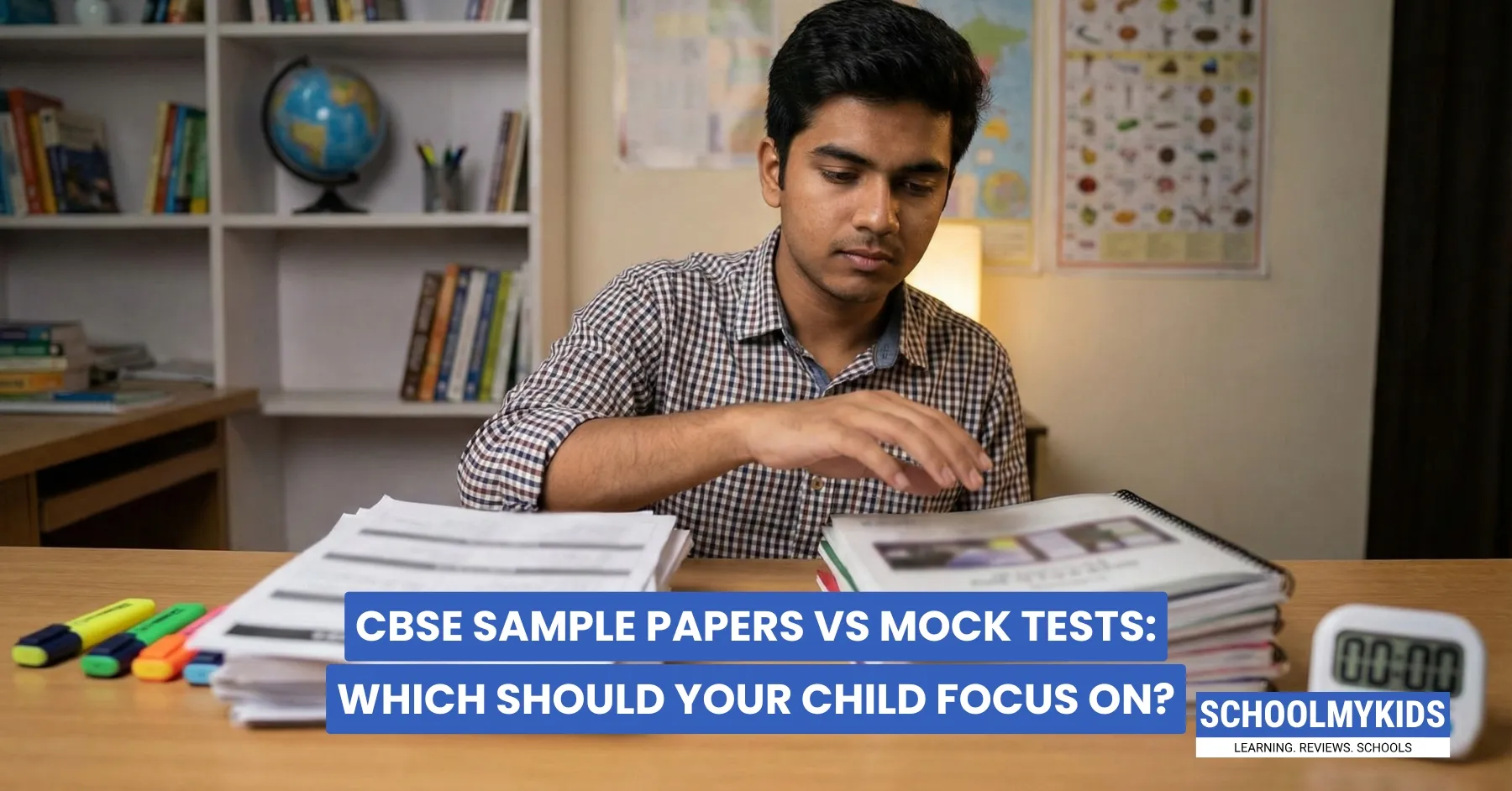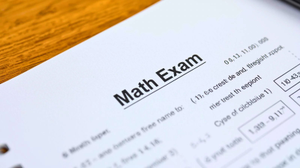Your child has a stack of CBSE sample papers on one side of the desk and mock test schedules on the other. And you're both confused about which one actually helps more.
Exam season turns every parent and student into a confused planner. Should we solve more sample papers? Should we take more mock tests? What if we're wasting time on the wrong thing?
What we need to understand is that both are important. But they do completely different jobs. And understanding this difference can change how your child prepares.
What Sample Papers Actually Do?
Think of sample papers as your practice ground. They're like learning to ride a bike in your colony park; safe, no pressure, you can stop whenever you want.
Sample papers help your child:
- Understand what kind of questions come in exams
- Practice different topics one by one
- Take their time to think and solve
- Check answers and learn from mistakes
Most students treat sample papers like homework. They sit with their books open, solve questions, check answers, and circle the wrong ones. No timer, no panic. This is perfect when you're still learning.
But many kids solve sample papers and feel super confident. "Mom, I got 35 out of 40!" they say. Great, right? Not always. Because exam conditions are very different from your study table.
What Mock Tests Really Do?
Mock tests are the real deal. They're like that first bike ride on the main road; a bit scary but necessary.
Mock tests teach your child:
- How to manage time (the biggest exam monster)
- How to handle pressure and stay calm
- Which topics they actually know vs which ones they think they know
- How to bounce back when they're stuck on a question
The biggest difference? Mock tests show the truth. Your child might know all the answers, but still score less because they spent 20 minutes on one question. Or they might panic in the first 10 minutes and mess up easy questions.
For instance, take Priya, she used to score 90+ in sample papers but barely 70 in school exams. After taking proper mock tests at home, she realized she was too slow. She wasn't dumb; she just needed to learn speed.
Which One Should Your Child Focus On?
Both, but at different times.
- Early in the prep (2-3 months before exams): Focus on sample papers. Let your child learn properly without time pressure. This is when they should understand concepts, practice different question types, and build confidence.
- Last month, before exams: Shift focus to mock tests. Now it's time to practice like it's the real thing. Set a timer, sit in a quiet room, no phone, no book checking.
- Last 10-15 days: Mix of both. Quick sample papers to revise topics, and at least one full mock test every 2-3 days to stay sharp.
Practical Tips That Actually Work
For Sample Papers:
- Don't solve them all at once. Your child will get bored, and it will become useless.
- After solving, spend time understanding wrong answers. This is more important than solving another paper.
- Keep a small notebook of mistakes. Trust me, the same silly errors repeat in exams.
For Mock Tests:
- Create real exam conditions. Same time, same duration, even the same uncomfortable chair if needed.
- Don't let your child check answers immediately. Make them sit with that uncomfortable feeling of "I don't know if I got it right." That's what exams feel like.
- After the mock test, take a break. Then review answers with a fresh mind.
The Big Mistake Most Students Make: They solve 20 sample papers but take zero proper mock tests. Then they wonder why they feel lost in the actual exam. Or they take mock tests but never analyze what went wrong.
It's not about quantity. A student who solves 5 sample papers properly and takes 3-4 serious mock tests will do better than someone who solves 50 papers mindlessly.
What About Stress?
We know that mock tests can be scary. Some kids get so nervous that they want to avoid them completely. If that's your child, start slow. Maybe a 20-minute section test first. Then 1-hour tests. Then full 3-hour papers.
The point is to get comfortable with discomfort. Exams are uncomfortable, and that's just how it is. But practice makes it manageable.
Conclusion
Sample papers teach your child what to do. Mock tests teach them how to do it under pressure. Both matter.
Start with sample papers to build knowledge. Move to mock tests to build exam temperament. And in the last stretch, balance both.
Your child just needs to be prepared for what the exam day actually feels like. That's what makes the difference between "I know this" and "I can do this when it matters."
Good luck!








Be the first one to comment on this story.